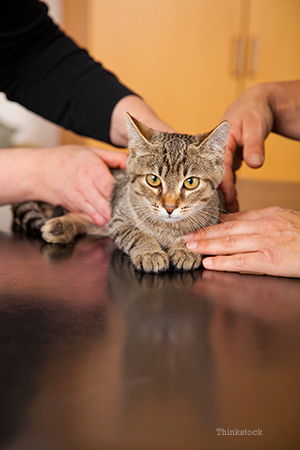What is FIV?
Feline Immune Deficiency or FIV is a viral infection of cats first isolated in California in 1986. Many people confuse FIV with Feline Leukemia Virus (FeLV). Although these diseases are both retroviruses and cause many similar secondary conditions FeLV and FIV are different diseases.
Many people confuse FIV with Feline Leukemia Virus (FeLV). Although these diseases are both retroviruses and cause many similar secondary conditions FeLV and FIV are different diseases.
Is my indoor cat safe from FIV?
Because of the contagious nature of this disease, it is advisable to know the status of cats you live with. Though not at all contagious to humans, it is transmitted from cat to cat by means of deep bite wounds. While outdoor cats have a tendency to fight, increasing the risk of infection, indoor cats are not immune.
Can FIV be treated?
Unfortunately, there is no specific antiviral treatment for FIV. Cats can carry the virus for a long time before symptoms appear. Treatment is used to prolong asymptomatic periods and to prevent the secondary effects of the virus.
Why test my cat for FIV?
The first reason is to learn your cat’s FIV status. This will impact your decisions about the cat’s lifestyle and whether or not to add another cat to your family.
Does testing cats help prevent FIV?
The best way to keep your cat from contracting the virus is to keep him indoors, avoiding any chance of contact with infected felines. If your cat is going to be spending any time with other cats make sure all cats have tested negative for FIV. Also, a recently adopted cat should be tested for FIV prior to entering your home.
Hopefully your cat will test negative. If your cat is considered to be at high risk, you may want to discuss FIV vaccination with your veterinarian. Unfortunately, once cats have been vaccinated, the FIV antibody test cannot distinguish antibodies due to infection from those produced as a result of the vaccine.
If you have any questions or concerns, you should always visit or call your veterinarian -- they are your best resource to ensure the health and well-being of your pets.
